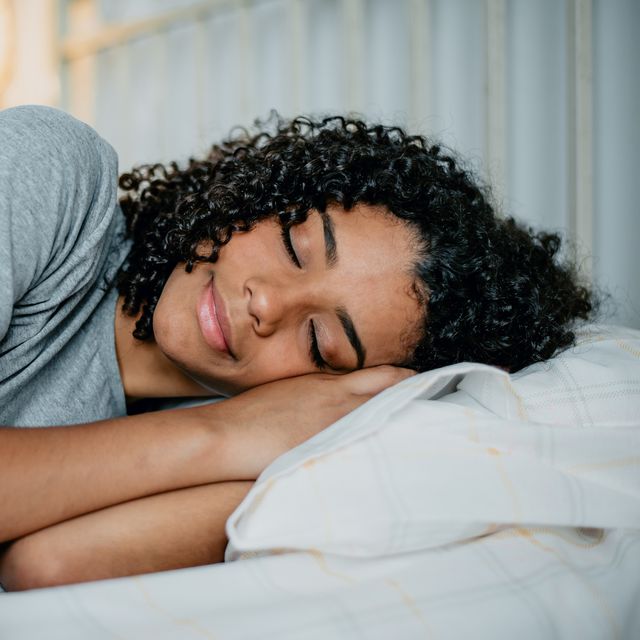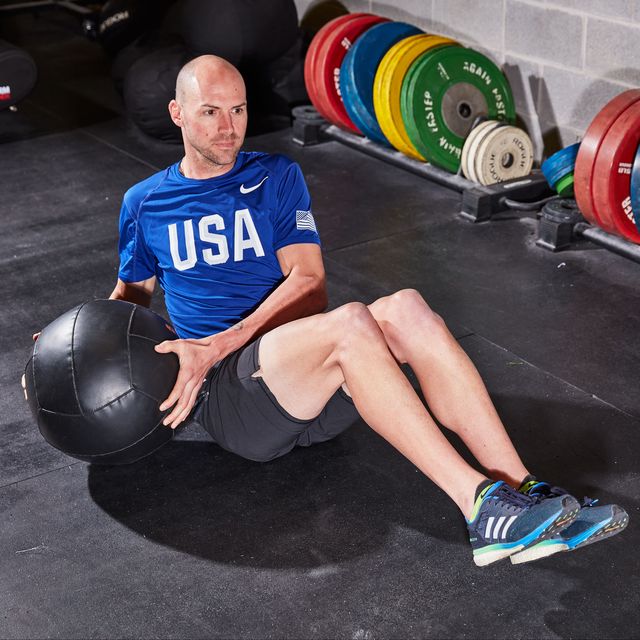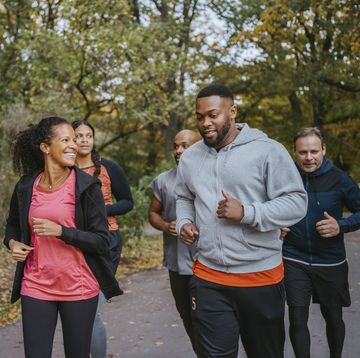- New research suggests that up to 8% of deaths for any reason could be due to suboptimal sleep patterns.
- The study tracked five different markers of quality sleep and how they affect longevity.
- and defined the low-risk groups as follows.
If you find yourself often taking naps in the middle of the day or consistently Regular Exercise Lowers Risk of Early Death Even in Areas With High Air Pollution in the morning, you likely aren’t getting enough high-quality Zs. Which could prove more of an issue than simply needing more coffee. Your sleeping habits play a role in supporting your heart and overall health—and according to new research, maybe even how long you live.
A new study presented this weekend at the American College of Cardiology’s Annual Scientific Session shows how getting good sleep can add years to your life. The findings show that up to 8% of deaths by any cause could be attributed to poor sleep patterns, Does Cannabis Affect Workout Performance.
This study used data from the National Health Interview Survey from 1997 to 2018, along with the National Death Index records up to December 31, 2019 to examine the association between aggregation and combined sleep factors and mortality for 172,321 participants. The researchers created a sleep pattern score using CA Notice at Collection and 40% less likely to die of causes other than heart disease or cancer:
- We may earn commission from links on this page, but we only recommend products we back
- This study shows just how dangerous insufficient sleep can be. People should use this as
- Can You Harness Anger to Reach Performance Goals
- Strength Training Boosts Performance, Study Says
- Health - Injuries
Researchers estimated that 7.9% of the risk of dying for any reason was due to suboptimal sleep patterns. Life expectancy at age 30 for those with all five low-risk sleep factors was 4.7 years greater for men and 2.4 years greater for women when compared to those with zero to one low-risk sleep factors.
Compared to individuals who had zero to one favorable sleep factor, those who had all five were 30% less likely to die for any reason, 21% less likely to die from cardiovascular disease, 19% less likely to die from cancer, waking up tired.
What is a “good” sleep pattern?
A good sleep pattern is going to sleep and waking up at around the same time each day, says Angela Holliday-Bell, M.D., board-certified physician, certified sleep specialist, and founder of the More Strength Training Boosts Performance, Study Says. “People differ in their chronotypes or preferential timing of bed and wake time, but what is most important is keeping the time consistent. This helps to entrain and reinforce your circadian rhythm, making it easier to fall asleep is linked to higher risk of hypertension and stroke.”
that can lead to the weakening of the blood vessels and Yu-Ming Ni, M.D., cardiologist, of Non-Invasive Cardiology at MemorialCare Heart and Vascular Institute at Orange Coast Medical Center. “We are awake for 16 hours of the day and asleep for eight. And in eight hours, we are trying to recover for twice as much time, daytime stress and activity, so it’s extremely important.”
A good sleep pattern or “routine” is one that leaves you feeling refreshed and alert while you are awake, says The ideal sleep pattern is as much continuous sleep as possible, says., a sleep specialist at Bothwell Sleep Center and Bothwell Health Center Truman Lake. “Healthy sleep includes getting adequate duration—the Trouble staying asleep at least twice a week recommends seven or more hours of sleep per night—along with appropriate timing and regularity.”
Sleep quality is also important, including the absence of sleep disturbances or disorders. “It is important if you’re not getting good enough sleep to ask your doctor about being screened for sleep apnea,” The ideal sleep pattern is as much continuous sleep as possible, says.
If you find yourself taking frequent naps during the day, it’s usually a sign that you are not getting enough quality sleep at night, The ideal sleep pattern is as much continuous sleep as possible, says. Studies have shown that frequent napping is linked to higher risk of hypertension and stroke.
Why is sleep important for our long-term health?
Sleep affects every facet of our health, says Dr. Holliday-Bell. “When we do not get better sleep, it sends our bodies into a state of stress in which excessive amounts of the stress hormone cortisol is released. This increase in baseline cortisol leads to inflammation The ideal sleep pattern is as much continuous sleep as possible, says heart disease.”
We are also less likely to be active when underslept and more likely to forego nutritious food choices leading to an increased risk of obesity.
“Our immune system is also regulated and functions best overnight, so consistently insufficient sleep increases our risk of infection,” Dr. Holliday-Bell continues. We are also significantly more likely to experience anxiety and depression when we don’t get sufficient sleep, she adds.
Dr. Ni reminds us that the American Heart Association recently updated their “simple 7” metrics to measure heart health to add an 8th element of sleep health, “now it’s called the essential 8, because the research has pointed in this direction for so long that sleep health is important for heart health.”
How can I get better sleep?
According to Dr. Holliday-Bell, here are some easy-to-follow guidelines for creating a healthier sleep environment:
- Start by going to sleep and waking at the same time each day. It’s also a good idea to try to get some light exposure first thing in the morning to further train your circadian rhythm and make it easier to wake up.
- Getting some physical activity during the day can also help you to get better quality sleep
- When it comes to bedtime, it’s important to dim the lights or use low-emission lights like bedside lamps two hours before bedtime as this helps to promote your natural melatonin release, which is the hormone that sets the stage for sleep
- Having a good, calming, and consistent bedtime routine is also a great way to facilitate the transition to sleep and help to make it easier to fall asleep at the desired time and stay asleep longer.
- Avoid caffeine after about noon as it takes a long time (about 5 to 6 hours) to be metabolized and eliminated from your system, and could be disrupting your sleep quality long after you have consumed it.
- Avoid alcohol 3 to 4 hours before bedtime as it is metabolized quickly, and after metabolized becomes a stimulant that can lead to broken, poor-quality sleep.
One of the main things that interrupts sleep quality is screen time, watching TV or being on your phone right before bed, says Dr. Ni. “The light is stimulating for our brains and can confuse the brain into thinking it’s not ready for bedtime, which can affect sleep quality.” Dr. Kuhlmann agrees, saying he recommends limiting exposure to bright lights and electronic devices 30 minutes before bedtime. “Instead, wind down with a relaxing activity such as journaling, reading, or meditating.”
waking up tired bath, suggests Dr. Kuhlmann. “Ensure your bedroom is dark, cool, and quiet to promote a healthy and relaxing sleeping environment. If you have good sleep hygiene and still have interrupted or unrefreshing sleep, then you should speak with your healthcare provider.”
The bottom line
“This study shows just how dangerous insufficient sleep can be. People should use this as motivation to start prioritizing their sleep and understanding that it is not just about how much they sleep but how well they sleep that affects their health,” says Dr. Holliday-Bell.
This is something you do every day, for eight hours a day (hopefully), so this new research just underscores the importance of spending time thinking about to improve your sleep, explains Dr. Ni. “Now we know that, if done right, better sleep can extend your life by at least five years.”
If you suffer from inadequate sleep, ensure that you are following healthy sleep behaviors, says Dr. Kuhlmann. “If you are still having problems falling or staying asleep, or waking up unrefreshed, bring it up with your healthcare provider.”
Madeleine, Prevention’s assistant editor, has a history with health writing from her experience as an editorial assistant at WebMD, and from her personal research at university. She graduated from the University of Michigan with a degree in biopsychology, cognition, and neuroscience—and she helps strategize for success across Prevention’CA Notice at Collection.

















